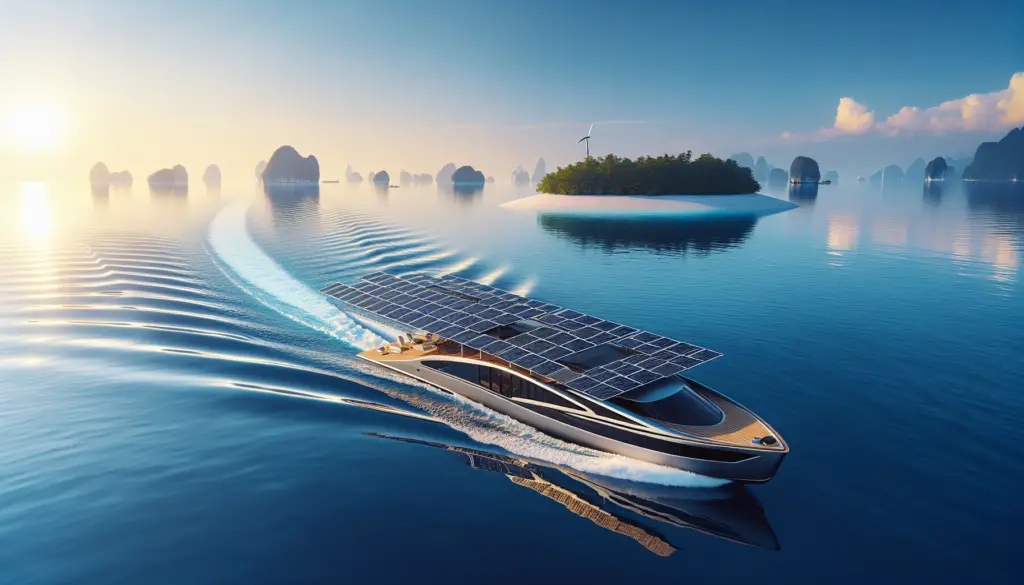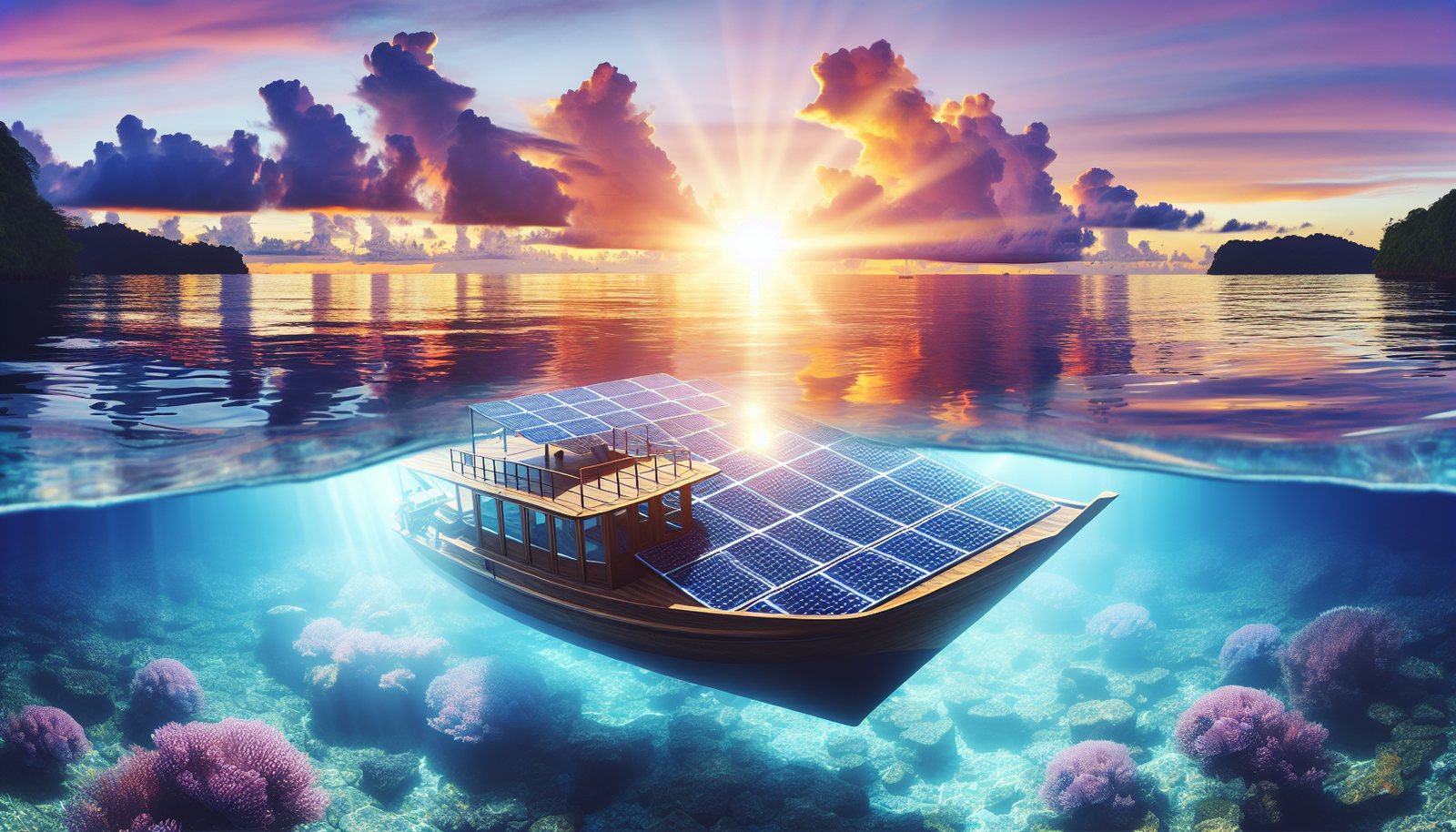As an ardent seafarer, you might consider how your passion for boating impacts the environment. The article “The Importance Of Sustainable Boating Practices” is a must-read for you, shining a light on green boating practices that strike a balance between your love for marine adventures and the planet’s well-being. Learn how to navigate the waters sustainably, leaving minimal footprints in our oceans, rivers, and lakes, as you continue to enjoy boating. Add another layer to your boating expertise as we tackle the vitality of promoting and implementing sustainable measures in the boating universe.

Understanding the Concept of Sustainable Boating Practices
Boating, as enjoyable as it can be, has implications for the environment that are often overlooked. As responsible users of our waterways, it’s time to change our habits and adopt more sustainable boating practices. But first, let’s define what sustainable boating actually means.
Definition of Sustainable Boating
Sustainable boating can simply be defined as practices that ensure that your time spent on the water has minimal impact on the environment. It is being mindful of the carbon emissions your boat produces, the impact on marine life, the waste generated onboard, and the manner in which your boat operates around coral reefs, underwater grass beds, and other sensitive areas.
Why Sustainable boating matters
You might be wondering, “why does sustainable boating matter?” Well, sustainable practices are not limited to land-based activities only. Our oceans, rivers, and lakes are equally important, and the current health of our waters is a stark reminder that water is a resource not to be taken lightly. Any action taken today on sustainable boating will lead to a greater impact tomorrow, hence making boating more enjoyable for future generations and preserving marine habitats.
Environmental Impact of Boating Activities
To embrace sustainable boating, we must comprehend the environmental impact of boating activities, how we contribute to it, and ways to mitigate the negative effects.
Assessing the ecological footprint of boating
Every boating activity leaves behind an ecological footprint that can affect water quality, wildlife habitats, and other vital elements of the ecosystem. This footprint ranges from carbon emissions, fuel leakage, waste disposal, and even the noise from the boat’s engine.
The role of carbon emissions in boating
Often ignored, carbon emissions from boating have a significant impact on the environment. The fuel used in boats releases carbon dioxide and other harmful pollutants which contribute to global warming, climate change, and poor air quality.
Effect on aquatic life due to boating
Boating activities can directly or indirectly harm aquatic life. For instance, motorized boats generate noise that disrupts the behavioral patterns of certain marine animals. Additionally, the waste and chemicals leaked or disposed into the water bodies may degrade the quality of water and harm aquatic organisms.
Notable Sustainable Boating Practices
The good news is that there are sustainable boating practices which you can adopt to mitigate the aforementioned effects.
Use of Eco-friendly Products
Many boat cleaning products used today are full of harsh chemicals that can harm aquatic life. Opting for eco-friendly cleaning products can minimize harm and still keep your boat sparkly clean.
Waste Management Onboard
Proper waste management onboard plays a crucial role in sustainable boating. This means disposing trash onshore, recycling when possible, and refraining from throwing anything overboard.
Energy Conservation on Boats
You can reduce the carbon footprint of your boating activities by adopting energy-saving habits. These may include regular maintenance to keep your boat’s engine running efficiently, correct weighting, and loading of your boat to reduce drag, and running at optimum speeds to conserve fuel.
Adopting Renewable Energy Sources
Advancements in technology have led to various alternative energy options for boaters. These include solar panels, wind turbines, and even hydro generators that can power your boat with renewable energy, further reducing your carbon footprint.

Importance of Biodiversity in Boating Areas
Biodiversity refers to the variety of life in a particular habitat or ecosystem, and boating practices can have a considerable influence on it.
Effect of boating on local biodiversity
Although boating can be enjoyable, it can inadvertently harm local biodiversity. Activities like wakeboarding, jet skiing, and high-speed power boating can cause physical disturbances, displacing wildlife, and destroying crucial habitats.
How boating can help conserve biodiversity
By adopting sustainable boating practices, you could not only reduce harm to biodiversity but actually contribute to its conservation. For instance, limiting boating speed can prevent damage to sensitive areas underwater, while proper waste disposal can prevent pollution, keeping water bodies healthy for aquatic life.
Sustainable Fishing and its Relevance to Boating
Fishing is a prominent activity enjoyed by many boaters. However, to prevent depleting fish stocks and harming aquatic ecosystems, sustainable fishing practices should be followed.
Fishing Practices that Promote Sustainability
The use of environment-friendly fishing gear, seasonal fishing, limited catches, and fishing only mature fish are examples of sustainable fishing practices that ensure the fish population is replenished for future generations.
The Practice of Catch and Release
Catch and release is a practice where fish are caught for sport but returned to the water as quickly as possible. This can help maintain a robust fish population and supports the ecosystem’s health.
Understanding Aquatic Population Dynamics
Knowing where and when fish spawn and their migratory routes can aid in developing more effective fishing regulations, leading to healthier and more robust fish populations.
Role of Policy and Regulation in Promoting Sustainable Boating
Nationwide rules and regulations are a significant driver in promoting sustainable boating.
Existing Policies on Sustainable Boating
Presently, several policies exist that guide boaters on the right path. These include mandatory clean boating practices, guidelines for boat and engine maintenance, and regulations regarding disposal of waste and use of cleaning agents.
Regulations fostering the Adoption of Sustainable Practices
Regulatory bodies promote sustainable practices by advocating for renewable energy usage, limiting speed in high biodiversity zones, and mitigating boat damage caused to sensitive habitats.
Potential Policy Improvements for Promoting Sustainability
Further policy improvements could augment the progress towards a more sustainable boating future. These could involve stricter enforcement of existing regulations, establishing defined boating lanes to protect sensitive habitats, and creating awareness programs about the importance of sustainable boating.
Community Involvement in Sustainable Boating
The role of local communities in sustainable boating cannot be understated. They are central to creating awareness, fostering consciousness among residents, and promoting sustainable practices.
The Part of Local Communities in Promoting Environmental Conservation
Local communities can promote environmental conservation by organizing clean-up drives, seminars, and workshops on sustainable boating practices, and by encouraging community members to participate actively in sustainability initiatives.
Community Initiatives Fostering Sustainable Boating
Several community-led initiatives foster sustainable boating. These can include marina recycling programs, harbor clean-up days, eco-friendly boat races, and local laws enforcing responsible boating.
The Economic Benefits of Sustainable Boating
Beyond environmental preservation, sustainable boating has potential economic benefits too.
Cost Savings from Energy-efficient Practices
By adopting energy-saving practices, boaters can significantly reduce expenses on fuel. Further, the use of renewable energies like solar and wind power results in substantial long-term savings.
Potential for Green Jobs in the Boating Industry
Transitioning towards sustainable boating could open avenues for green jobs. These range from manufacturing and installing renewable energy systems in boats, to professionals offering eco-friendly boat maintenance services.
Tourism Benefits from Sustainable Boating
Eco-conscious travelers are on the rise, and many prefer to patronize businesses that practice sustainability. Hence, sustainable boating can foster ecology-based tourism, ultimately boosting the local economy.
The Future of Boating: Potential Innovations and Trends
Boating of the future looks promising with various innovations aiming at environmental sustainability.
Technological Innovations Promoting Sustainability in Boating
From solar-powered boats to biodegradable boat-cleaning products to low emission engine technology, several innovations are at the forefront of sustainable boating.
Emerging Trends in Sustainable Boating
The growing interest in eco-friendly lifestyles is driving new trends in the boating world. These include the increase in popularity of electric boats, the use of renewable materials for boat construction, and digital tools for optimizing boating efficiencies.
Increasing Awareness and Education about Sustainable Boating
Spreading awareness and educating the boating community on sustainability is crucial for the wider acceptance of sustainable boating practices.
Creating Public Awareness about Sustainable Boating
Awareness can be created by organizing boating expos, seminars, and workshops focusing on green boating practices. The media also plays a pivotal role in spreading information.
Educational Programs Fostering Sustainability in Boating
Certain institutions offer programs centered on teaching sustainable boating practices. These courses help boaters understand the impact of boating on the environment and teach ways to reduce their ecological footprint.
In conclusion, the call to action is clear. It’s time to embrace sustainable boating to safeguard our water bodies, protect biodiversity, reduce carbon emissions, and much more. Let’s all do our part to ensure a healthier environment and a more sustainable future for boating.

